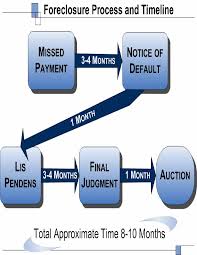The Effects of a Foreclosure
This is a excellant example of the effects. Orginally posted by a assocaite in the D.C area. But, it doesn't matter if your in D.C or Boston. The results are the same. Please take a moment to read this.
The Effects of a Foreclosure

The Pew Research Center released the results of a survey this week that found that more than one-third of Americans say it is acceptable under some circumstances to stop paying a mortgage and walk away from a home and its mortgage.
Moral questions aside, I wonder whether people who do walk away from their home realize what lies in store for them. As a real estate attorney told me, many delinquent homeowners are so worn down by the shame, anger at the banks and the constant burden of an uncertain future that they often see a foreclosure as relief because they will be "done" with the ordeal.
But let's take a look at the effects of a foreclosure. It turns out those who have a foreclosure aren't really "done." Yes, the house is no longer yours, the phone calls from the lender will stop, and you have to find another place to live, but many things aren't over.
For one thing, your credit score will go down from between 250 to more than 300 points, according to the Distressed Property Institute. Think how that could affect your interest rates on your credit cards, or whether you will be able to finance a car or any other major purchase. A foreclosure will stay on your credit report for 10 years or more. A foreclosure will prevent you from obtaining a Fannie Mae-backed mortgage for five years. A foreclosure could prevent future employment, if an employer runs a credit check, and more are doing so these days. A foreclosure could challenge a worker's security clearance, which, in the Washington, D.C., area, is a huge concern for many residents.
And in all foreclosure cases, except those in states where there is no deficiency, a lender has the right to pursue the former homeowner with a deficiency judgment. A deficiency is the difference between what the owner owed on the mortgage and what it sold for. For example, if the owner owed $200,000 on the mortgage and it sold at auction for $150,000, then the lender has the right to get a judgment that the owner still owes the lender $50,000. A bank could obtain the judgment years after the foreclosure occurs.
Rather than suffer from all these effects, a homeowner is better served with a short sale, in which a buyer, with the lender's approval, purchases the home for less than what is owed on the mortgage. A short sale is not reported on a homeowner's credit report. Instead, it shows on the report as "paid in full, settled." The owner's credit score would go down as little as 50 points and affect that score for 12 to 18 months. A short seller will be eligible for a Fannie Mae-backed mortgage after two years. Usually, a short sale does not challenge a person's security clearance, and they are not usually a barrier to future employment. And, in most cases, it is possible to convince the lender to give up the right to pursue a deficiency judgment against the homeowner.
As the real estate attorney said, having a short sale is like getting hit by a car. You can recover from that. But having a foreclosure is like getting hit by a train.
So if you find a foreclosure acceptable, fine, but please be aware of the consequences
Source: Washington Examiner
For more questions, you can reach us at the following:
BBT Team
Keller Williams Preferred Properties
9701 Apollo Drive, Suite 102
Largo, MD 20774
Phone: 240-737-5024
EFax: 240-296-5024
Email: reo@bbtrealestategroup.com


Comments (0)Subscribe to CommentsComment